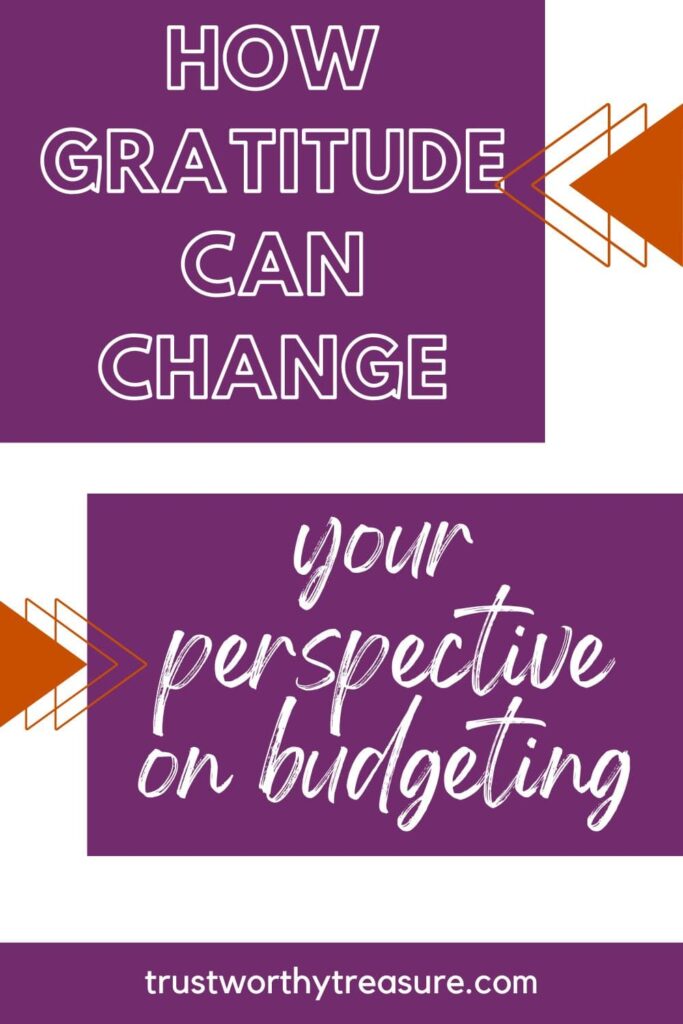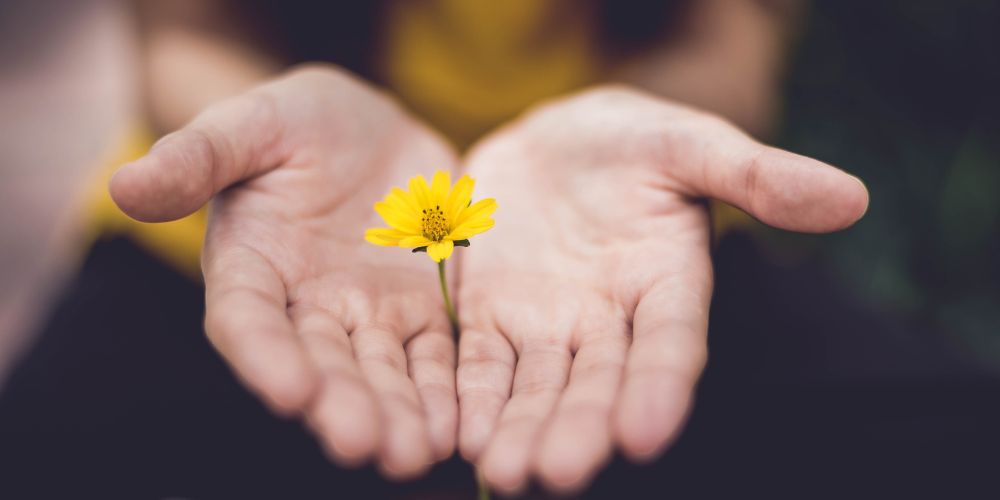How often when someone asks “how are you” you answer with “work is hectic” “the weather sucks” etc.?
I know my default answer to that is generally to mention a more negative thing – after all, misery loves company!
While gratitude is important to cultivate if you are a Christian, it can have a big impact in your life, no matter what your beliefs.
I think gratitude can be especially important as we navigate our finances.
I heard a teaching a few years ago that cited “Positive Psychology” as described by psychologist Martin Seligman. He began researching the effects of gratitude on moods.
Importance of Gratitude
Gratitude can change our perspectives in fairly short order.
While I’ll keep this post as a general overview, I was surprised to learn just how important gratitude can affect our moods and perspectives.
Positive Psychology
My understanding of Positive Psychology is that it is focusing on what makes life worth living, not just trying to make life less miserable.
One of the main exercises of Positive Psychology is the “3 Good Things” exercise. More on this later, but it consists of tracking 3 good things that happened to you (or that you did) every day.
An interesting point made in the video of this post on the Positive Psychology website is about happiness and its relationship to how much money you earn.
Below the poverty line, the more money you make makes you happier. Once you reach that threshold, downturn occurs pretty quickly (at time of video it was about 80k/year).

Gratitude as it Relates to Finance
In our culture, I’ve noticed two extremes in money perspectives that stick out: Spend on what feels good OR hoard money.
My tendency is to hoard money. I’ve had dreams of financial independence and getting to a point where I can spend money on whatever I want.
Over the past couple of years, I’ve started to ask myself – what is a good middle ground?
While I don’t think spending money on enjoyable things or experiences OR saving money is bad, I find it easy to get caught up in one perspective or the other.
Starting with being grateful for what we have
Both these extremes are cultivated by wanting more. More stuff now or more security for later. I think we’re missing the point in both tendencies.
Nothing is inherently bad about wanting the newest travel mug or early retirement, but there’s more to life than those things.
Rather than focusing on spending on the now or saving for the future, I wonder if a key to financial freedom is being grateful for what we already have. This, while considering how to have significance as it relates to our money.
“3 Good Things" Exercise
This exercise from the Positive Psychology website consists of writing down 3 good things that happened to you and why you are grateful for them.
I’ve been doing this exercise for a couple years. However, it wasn’t until I was looking into this in more detail that I saw the second part about explaining why you’re grateful for 3 good things. Since I’ve been doing this exercise, I’ve just been listing 3 things I’m grateful for.
I think this has still been very helpful for my perspective on life and finances!
From what I’ve gathered, the more time we spend reflecting on what we can be grateful for, rather than what is going wrong, the greater the positive effect on our mood.
3 Good things worksheet from positive psychology
Tracking “3 good things” is a really sweet way to reflect on what is going well. I track mine in my daily planner, but I know many other people track in a journal or in a list on their phone.
Here’s a template to help you get started if you’ve never tracked “3 good things” before!

Biblical Perspective of Gratitude
There are many examples throughout the Bible that we can look to as an example of how to have gratitude.
Luke 17 - Healing of the 10 Lepers
Jesus heals 10 lepers while he is on his way to Jerusalem from Galilee. Only one of the lepers comes back to thank Jesus for performing this miracle.
How often are we given so much, yet forget to thank God for it? I know I do this all the time. I generally operate on the idea that I’m the one accomplishing things in my life.
The reality is that we have been healed of far more than leprosy if we have a relationship with Christ!
Gratitude reduces anxiety
Philippians 4:6 – Don’t worry about anything; instead, pray about everything. Tell God what you need, and thank him for all he has done.
Difficult things are undoubtedly going to come our way.
While we may need to take steps to work on problems, the Bible tells us to give thanks to God for what He has done.
I have found that when I take a step back to give thanks and express gratitude, it recalibrates my thinking. Instead of naturally turning the negative side of whatever situation I’m in, I can realize that things could be a lot worse.
1 Thessalonians 5:16-18 –Always be joyful. Never stop praying. Be thankful in all circumstances, for this is God’s will for you who belong to Christ Jesus.
Being thankful in all circumstances feels impossible! Like the Philippians verse, giving thanks pulls us out of the vortex of negativity that can so easily entangle us.
Combats hardening of hearts
Romans 1:21 – Yes, they knew God, but they wouldn’t worship him as God or even give him thanks. And they began to think up foolish ideas of what God was like. As a result, their minds became dark and confused.
This section of Romans outlines God’s anger at sin. There is a whole list of sins that God has anger toward in this passage.
I think it’s interesting to note that not “giving thanks” is one of the main traits listed that appears to lead to the hardening of hearts.
How Gratitude Affects Finances
We are bombarded day in and day out with ads and talk of things we can have and feel we ought to have.
Taking a step back and being grateful for just a couple of things that we do have can help combat the constant lust for new things. This can be hoarding money, a fun new purchase, or whatever else it is that we want.
Gratitude Needs to be Cultivated
Gratitude doesn’t just “happen”. We need to make it a priority to take consistent time to focus on it.
Needs to be intentional and thoughtful. If this is something you want to pursue, I encourage you to figure out when and how to start the “3 Good Things” exercise.
Gratitude is not a feeling but a decision. If we wait to feel grateful before expressing thanks, my guess is it would never happen!
Goes beyond finances – it can affect all of life!



